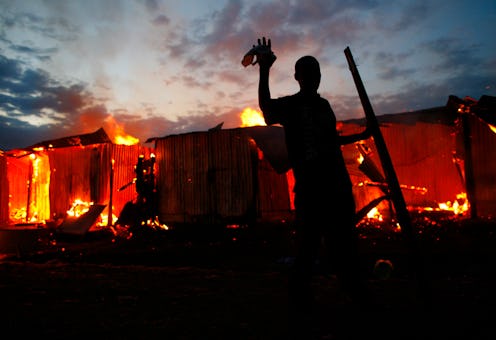News
Terrorist Group Brutally Massacres Kenyan Villages
A Somali terrorist group linked to Al Qaeda, Al-Shabab, took responsibility for two Kenya massacres that left about 60 people dead by Tuesday morning. The militants reportedly attacked the coastal Kenyan town of Mpeketoni Sunday night during a World Cup viewing, killing at least 48 people, Kenyan authorities said. Al-Shabab rebels then raided another coastal village, Poromoko, on Monday, resulting in at least 15 casualties, according to BBC News.
A spokesperson for al-Shabab confirmed the two attacks to Reuters Tuesday morning, saying the militants planned to continue their "campaign" in Kenya as a way to punish the African nation for fighting back in recent years. The Kenyan government had sent troops to Somalia in 2011 to quell the al Shabab rebels after they kidnapped foreign tourists. In response, al-Shabab called for Somalians to rise up and attack the Kenyan soldiers.
Al-Shabab is an Islamist militant group with roots in Somalia. In recent years, the group has been responsible for numerous brutal attacks throughout Kenya, including the 2013 Westgate Mall massacre in Nairobi, the nation's capital. The gunmen seized the mall — a popular spot for foreign tourists — for about three days, killing more than 60 people and wounding about 175 others.
Sunday's attack on Mpeketoni is said to be the most brutal since the Westgate Mall raid. The gunmen reportedly sprayed bullets into streets and set two hotels on fire.
Al-Shabab formed between 2003 and 2006, after frustrations mounted with the Somalian government. The Associated Press estimated that the group has between 4,000 and 6,000 members, although some al-Shabaab defectors have said the number is closer to 7,000 or 8,000.
According to a special report from the United Nations, al-Shabab was responsible for nearly 2,000 violations against children in 2012. Last May, the U.N. deployed a military force of 400 Ugandan soldiers to Somalia to protect foreign aid workers, nearly a year after al-Shabab rebels attacked a U.N. base. It was the first time the U.N. sent a guard force into the east Africa nation.
